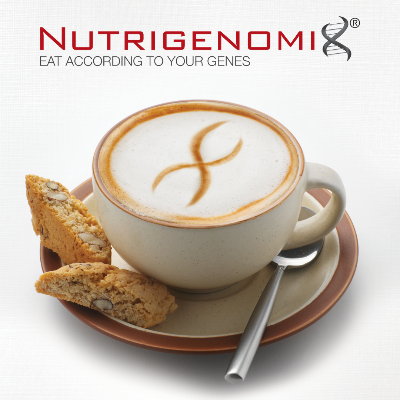Nutrition needs vary between men and women, and across the lifespan. While dietitians are trained to help women in many nutrition-related areas, such as pregnancy or sports nutrition. The focus of this article will be on nutrition guidelines during peri-menopause and menopause, nutrition and hormone health, and our clinic’s exciting new nutrition service – Nutrigenomics!
Menopause is linked to changes in metabolism, reduced bone density, and increased risk of heart disease. Therefore, it becomes increasingly important to choose a diet rich in nutrients but lower in caloric density. Think healthy fats, lean sources of protein, low-fat dairy or dairy alternatives, and plenty of fruits and vegetables. Also, physical activity plays a critical role in supporting metabolism, maintaining muscle mass, and maintaining bone health.
Below are some great guidelines for healthy eating in menopause or perimenopause:
- Choose a diet that is nutrient-dense, but lower in caloric density. This includes an emphasis on vegetables, fruits, legumes, nuts, seeds, whole grains, lean protein, and good food sources of calcium.
- Ensure adequate protein at each meal to maintain lean muscle mass.
- Ensure appropriate portion and type of carbohydrates (low-glycemic, complex carbs such as whole grains, legumes, fruits, vegetables, nuts and seeds.)
- Ensure adequate nutrition for bone health. This includes ensuring adequate calcium (1200mg/day), Vitamin D (2000IU/day), and protein.
- Note: Prior to menopause, calcium requirements are 1000mg/Day.
- Iron: After menstruation stops, iron needs also decrease from 18 mg/day to 8 mg/day.
- Folic Acid: The recommendation of 400 mcg/day is no longer of immediate importance as this is primarily to prevent neural tube defects in the developing fetus.
- Activity: Reduce sedentary behaviours. Studies suggest that 60min of activity per day can maintain body weight, the same amount recommended by the Institute of Medicine.
- Exercise: Include some form of cardio and resistance exercise to assist in your metabolism, maintain muscle mass, and support bone health.
- Sleep Quality: Many women undergoing menopause experience hot flashes during the day and night which is caused by the decline of estrogen and progesterone. This can impact the quality of sleep and overall quality of life. Lack of sleep can also alter our hunger and satiety hormones altering food choices and leading to unwanted weight gain. To help mitigate sleep disturbances, aim to abstain from caffeinated and alcoholic beverages 6 hours prior to sleeping.
Plant-Based Foods for Hormonal Health
Regulation of hormonal health during menopause is multifactorial and complex, however, there is some evidence that foods high in phytoestrogens and phytoprogestins, molecules found in many plant-based foods, can provide several health benefits.
Phytoestrogens have been well-researched for their role in improving health outcomes. Examples of foods high in phytoestrogens are soybeans and other legumes, grapes, peanuts, broccoli, cabbage, spinach, flaxseed, berries, tea, and coffee. They can also be found in other fruits, vegetables, nuts, and seeds.
Phytoprogestins are less researched than phytoestrogens but may have beneficial health effects as well. Similarly, they are found in many plant-based foods including Tea (Ex. chamomile), vegetables (Ex. parsley, celery, onions), fruits (Ex. oranges), herbs (Ex. thyme, oregano, basil). Interestingly, “naringenin” is one of the four identified phytoprogestin molecule types, and provides the typical bitter taste in citrus, including grapefruit, orange, and lemon.
To optimize your intake of phytoestrogens and phytoprogestins through food – Consume a wide variety of plant-based foods, including herbs, spices, and plant-based proteins such as nuts, seeds, soy and other legumes.
Nutrition misinformation on the web – Soy and Phytoestrogens
Unfortunately, there is a lot of false health information on the web regarding phytoestrogen consumption, namely soy-based products like tofu, tempeh, edamame, and soy milk. While not all studies are conclusive, the vast majority of studies have linked increased soy consumption (and other phytoestrogen foods) with improved health outcomes. For example, research suggests pre- and post- menopausal women who have higher dietary phytoestrogens may see beneficial thyroid, cardiovascular and blood sugar effects.
While I do treat individuals and not populations, I would recommend discussing this more in person if you have any concerns including these types of foods in your diet. But for the general population – consider the myth of soy being more dangerous than soy itself. It’s an excellent plant-based protein and has several known benefits to health.
Exciting Update – Nutrigenomics Service
We have introduced a new service at Preventous Collaborative Health called Nutrigenomics. For this service, we perform a simple saliva-based collection which is then used to analyze nutrition-related genetics and translate them into actionable lifestyle interventions, including weight management, cardiometabolic health, nutrient metabolism, food intolerances, eating habits, physical activity, and injury risk. We partnered with the Toronto-based company Nutrigenomix, who has a great reputation as being evidence-based. If you are looking to optimize your health through food and lifestyle, this genetic-based approach can provide personalized insights into what strategy may be best for you! Members do receive a discount.
Further Resources
There are several menopause-related areas with known nutrition recommendations including heart health, bone health, and digestive health. We, Preventous dietitians, can definitely support you in these areas with more personalized information and counselling. Also – if you are looking for a well-written book on the topic of nutrition in Menopause, I can also recommend “The Complete Nutrition Guide to Menopause” written by renowned Canadian dietitian Leslie Beck, RD.
If you have any questions about nutrition in menopause, women’s health, or our Nutrigenomics service, please do reach out! Myself and Britney Lentz RD are proud to be your resource for evidence-based nutrition information and counseling support.
Daniel Neumann
Registered Dietitian


